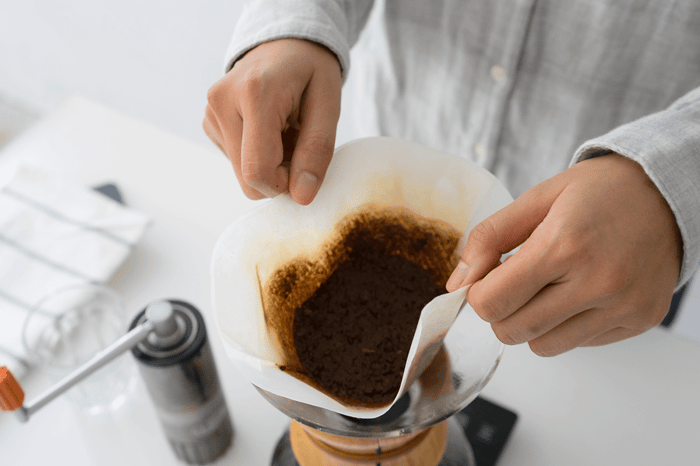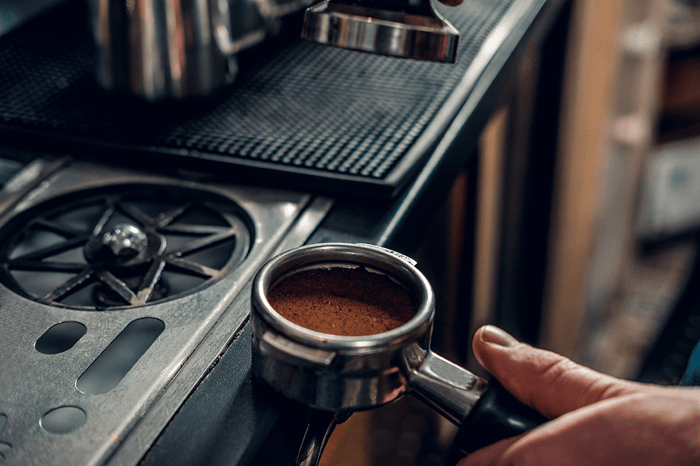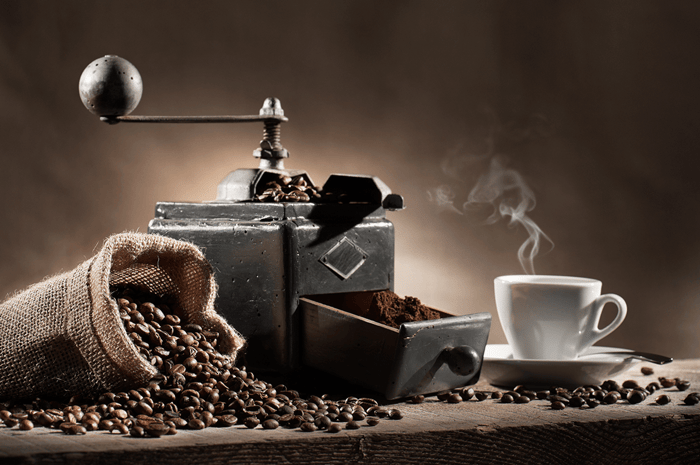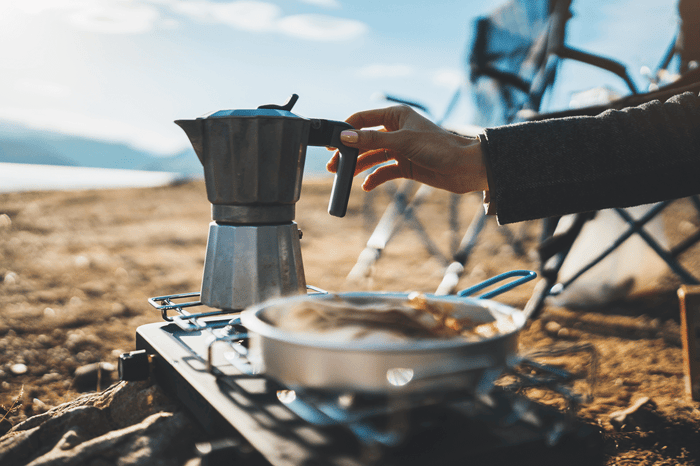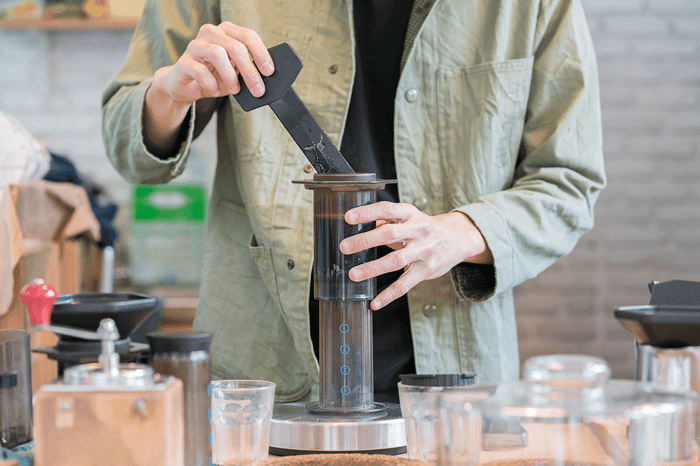While bitterness is often a key part of the flavor profile of a good cup of coffee, in a really good cup of coffee, bitterness shouldn’t be a dominant taste.
That’s why premium coffees advertise flavor notes on their packaging like “spice,” “nuts,” or “chocolate,” and not “notes of bitter gourd.”
If your cup of coffee suddenly tastes really bitter when it didn’t before, here are some of the most common culprits—and how to solve the problems.
#1 – Your Equipment is Dirty
One of the most common culprits for a bitter cup of joe is dirty coffee making equipment at some stage of the grinding/brewing process. Fortunately, this is generally one of the easiest possible causes to solve—or at least one of the more straightforward ones.
Solution: Clean your dirty equipment
Just clean your brewing equipment, or your grinder, or all of them just to be sure. You should be cleaning your coffee making equipment regularly anyway, but sometimes it’s easy to forget.
Especially with things like grinders that don’t need to be emptied/cleaned between every single use.
It’s too easy to accidentally let those blades or burrs get caked up and covered with coffee oils, which eventually turn rancid when left long enough. So if you’re grinding your own beans at home and find that the end product of your coffee making ritual is suddenly less-than-optimal-tasting, check the cleanliness of your grinder first.
If your grinder isn’t the culprit, it could be that your brewer needs a deeper-than-usual cleaning.
Or, it could be our next suspect:
#2 – You’re Grinding Your Coffee Too Fine
Did you know that the size of your grind affects the flavor profile of your coffee? Well, I used to not know this.
A long time ago, I was trying to get the most flavor out of my coffee beans, so I thought I’d achieve this by grinding my pourover coffee finer, and finer, and finer, until it was so fine the water barely passed through it.
And it ended up working in a sense—it did extract a lot of flavor. Just not any flavor I remotely wanted in my coffee.
This happens because of over-extraction. Just like using water that’s too hot, having more exposed surface area throughout your grounds results in an excess of bitter flavor getting extracted—and ending up in your cup of coffee.
Solution: Stop it
If you’re using a finer grind in your brewing process than before, you may not suspect that this is why your perfectly good premium coffee suddenly tastes awful.
Experiment with using a coarser grind, and see if this fixes your bitterness issues. (When it comes to coffee, anyway.)
#3 – The Water You’re Using is Too Hot
Brewing temperature plays an important role in the quality of your cup of coffee. If you use water that’s too hot, you’ll extract more of the natural bitter flavor compounds from your coffee grounds.
Solution: Let your water sit longer before pouring it on your grounds
How hot is too hot? Boiling is definitely too hot, so if your water is bubbling at all, there’s your problem.
If you’ve started using water that’s higher than 205°F, however, your coffee can still taste more bitter than it may have before.
If you’ve recently switched to a different method of heating up water, say using an electric kettle instead of heating water on the stove, or microwaving your water to heat it up, check to make sure you’re not using water that’s near boiling. If in doubt, let it sit for a minute before pouring it over your precious grounds.
#4 – Your Coffee Is Steeping Too Long
Are you exploring a new brewing method lately, like using a French Press or the famous/infamous Inverted AeroPress method?
If so, it’s very easy to let your coffee steep for too long, either as an accident or just trying to get a better result out of the extraction stage.
However, hot water just isn’t meant to stay in contact with coffee grounds for a long time (like when making cold brew)
Solution: Shorten the length of time your grounds are immersed
I know you want the most caffeine, and the most flavor, but “This ain’t it, chief.” Or whatever bullshit they say on Twitter.
#5 – You Just Ate or Drank Something Sweet
This one troubled me for years—literal years—before I took the time to do some hard research/hard Google searches and figure out what was happening.
If you take a swig or a bite of something really sweet before you take a sip of coffee, it’ll completely change how your coffee tastes. Drinking your coffee after your tongue has adjusted to sugary sweetness will amplify the natural bitter flavors in coffee—even if you’ve sweetened your coffee!
I’m surprised I didn’t make this connection earlier. I’d have figured doing this could affect the flavor of coffee somewhat, but I wouldn’t think it would affect it as much as it does.
Solution: Chill with the sweets (or have them after your coffee)
Ironically, this is the same reason why having coffee with dessert can make dessert taste better. But if you’re like most people, a good tasting cup of coffee is more important to you than a slightly sweeter tasting cinnamon roll.
Still, being aware of how your body perceives taste can help you stop pulling your hair out trying to find out why the perfectly good coffee you took a sip of 2 minutes ago suddenly tastes absolutely terrible after you ate a spoonful of yogurt.
Fortunately Black Insomnia carefully roast high quality beans to produce a smooth coffee without the bitterness. Now check out your soon to be new favorite coffee.

